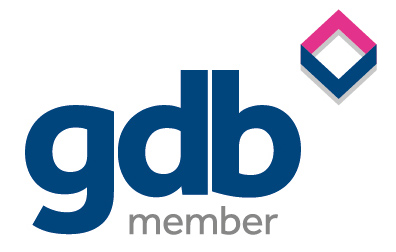Harvey John
Unit 2 Ferry Wharf
Hove Enterprise Centre
Basin Road North
Portslade, East Sussex
BN41 1BD
When I started my journey in Indirect Tax recruitment, I thought selling candidates to practice firms would be easy! I’d spoken with hundreds of accountants who’d kill for the opportunity to join a firm that would enable them to establish a strong foundation on which to build their careers. One they could name-drop in casual conversation and see others stare back at them with thinly veiled admiration.
Accountants who’ve shifted away from the industry or transitioned in-house are often quick to tell you where they started out, and some wear it like a badge of honour on LinkedIn. You’ll commonly find profile headlines like “Ex-KPMG” or “Ex-Deloitte”. It’s clearly a point of pride, and as a recruiter, I can attest that when we see these headlines, they have the desired effect. When I’m on the lookout for a Director for a top firm, these headlines swiftly grab my attention, prompting me to pick up the phone and see if you’d be up for a coffee.
But once I got speaking with professionals in practice, the image I’d had of the practice market quickly changed.
There’ll always be die-hard practice accountants out there, but there’s a growing trend among practice candidates who aim to transition from large firms to in-house roles.
Their reasons?
- Work-life balance
- Timesheets
- The volume of work
- Timesheets
- The way in which progression is managed
- Timesheets
- Working with difficult clients
Although there are certainly challenges associated with working in practice, it can be challenging to communicate the benefits to someone who has already set their sights on an in-house role.
For those candidates who are resolute about staying or returning to practice, an overwhelming number of them express similar reasons for choosing this path over an in-house position.
So, if you’re wondering why sticking with or returning to practice might be the right choice for you, here are their reasons for favouring this path:
Diverse clientele. For those not wanting to specialise, practice allows you to gain exposure to various industries and complex tax issues. Every day is a challenge and working across multiple sectors is quite an enticing prospect for some.
Specialisation opportunities. For those wanting to specialise, practice allows you to be at the forefront of industry developments. It offers you the chance to become a specialist in your field. In some cases, you will be encouraged to use your expertise to contribute articles to industry publications and speak at industry-specific events, perfect for gaining visibility across tax circles.
Mentorship. Larger firms invest heavily in training programs and mentorship. They know how important it is to stay updated on the latest tax regulations and developments. It’s something that a lot of candidates miss out on when they move into industry roles. They also have fewer opportunities to use the knowledge they have cultivated over their career to influence and develop younger professionals.
Networking. Big firms provide ample opportunities to network with industry experts, clients, and colleagues, which can lead to new business opportunities and career advancement.
Structure. The thought of filling in one more timesheet might fill you with dread, but believe it or not, some candidates often miss the structure that comes with working in practice. Streamlined processes and duties are often lacking in industry. Practices are also far more likely to drive tax technology initiatives which means increased automation and much less manual tasks.
Collaboration. Being part of a team that meets regularly to discuss industry updates and share knowledge makes people feel like they are part of the bigger picture. Not only that but having a support system that is just a phone call away makes it much easier to navigate complex tax legislation. There is often someone in your team who has dealt with an issue in the past and is able to advise you on how to proceed.
Career growth: Working in practice means well-defined paths for career progression. Whether you want to be on the partner track or you want to pivot into a different area of the business, there are transparent structures in place, and a designated confidante you can approach to discuss your aspirations. For small in-house teams, there are fewer opportunities to take on leadership roles, often leaving employees feeling that there’s no room to grow.
Prestige. While this may not be important to everyone, the allure of belonging to a renowned, award-winning global organisation still holds sway for some. The opportunity to attend prestigious events and accept awards for the firm’s groundbreaking work brings a sense of recognition that’s not always present in smaller organisations.
At the end of the day, people differ. They have different motivations and factors that drive them. There’ll always be a place for tax accountants who want to be part of a globally revered organisation. And there’ll always be someone at Harvey John to help you find the perfect one.
Reach out to Alex Mann if you are interested in hearing about the roles we are working on.
For more updates and observations on the indirect tax practice market across the UK and Europe, be sure to subscribe to my new newsletter – Outside In – Tax in Practice
Author

From boutiques to the Big 4, and start-ups to multinational corporations, Alex manages a diverse portfolio of clients worldwide which has enabled him to develop a vast global network of indirect tax and tax technology professionals in 40+ countries.







